- Home
- Joy Fielding
Someone Is Watching Page 2
Someone Is Watching Read online
Page 2
Except he isn’t leaving me alone. He’s spinning me around and tearing at my clothes, his fingers ripping open the buttons of my black shirt and pushing my bra up over my breasts. “No!” I shout when I realize what is happening. Another fist crashes into my jaw, filling my mouth with blood. “Stop. Please. Don’t do this.” But my pleas are muffled and, if the man hears them at all, they do nothing to halt, or even slow down, the ferocity of his attack. An instant later he is tugging my jeans and panties down my hips. I kick furiously at the air, and I think my boot connects with his chest, but I’m not sure. It’s possible I only wish it had.
What is happening? Where is everyone? I already know the answer. There is no one. The people who live in this neighborhood are, for the most part, on the plus side of sixty. No one goes out after ten o’clock, let alone this close to midnight. Even the most dedicated of dog walkers put little Fifi to bed hours ago.
I feel the full weight of the man’s arm across my neck and shoulders, pinning me like a butterfly on a wall, as his other hand fumbles with his pants. There is the sickening sound of a zipper opening, then more fumbling, something being unwrapped. He’s putting on a condom, I realize, contemplating taking advantage of this distraction when a sudden punch to my stomach leaves me barely able to breathe, let alone attempt an escape. The man quickly pries my legs apart and pushes his way inside me. I feel the sudden cold of the lubricated condom as he tears into me, his hands reaching around me to grab my buttocks. I will my body to go numb, but I can still feel every vicious thrust. After what seems an eternity, it’s over. He bites down on my right breast as he climaxes, and I cry out. Seconds later, his lips approach my ear, his breath penetrating the fibers of the thin pillowcase. He smells of mouthwash, minty and crisp. “Tell me you love me,” he growls. His gloved hand clutches my throat. “Tell me you love me.”
I open my mouth, hear the word “bastard” tumble from my lips. That’s when his hand tightens its grip. My nostrils flare against the stiff cotton of the pillowcase, and I gasp in horror, gulping at the air, swallowing blood. I’m going to die here, I think, not sure how long I can remain conscious. I picture my mother and father, and for the first time am glad they aren’t alive to have to deal with this. The man’s thumb presses down hard on my windpipe. Tiny blood vessels explode like fireworks behind my eyes. And then, finally, mercifully, the outside darkness slips beneath my eyelids and I see nothing at all.
—
When I come to, the man is gone.
The pillowcase around my head has vanished, and the night air is licking my face, like a cat. I lie still for some time, unable to move, trying to gather the thoughts that are scattered among the broken hibiscus flowers framing my face, the taste of blood fresh in my mouth, a painful throbbing between my legs, my breasts bruised and sore. I’m naked from the waist down, and even with my eyes nearly swollen shut, I can make out the rivulets of blood that crisscross my thighs. Slowly, I pull my bra back into position, gather my blouse, and reach through the broken shrubbery for my jeans. My panties are missing, as is my canvas bag, and along with it, my gun and the license to carry it, my wallet, my cell phone, my camera, my ID (both personal and professional), and the keys to both my car and my condo, although I do manage to locate my binoculars.
“Help me,” I hear someone cry out, barely recognizing the voice I know is mine. “Somebody, please, help me.” I struggle into my jeans, then try to stand up, but my legs have all the strength of wet noodles and they collapse underneath me, so I crawl toward the street where I remember parking my car.
Miraculously, the silver Porsche is still there. Probably too conspicuous to steal. Definitely not the most suitable car for someone in my profession, but it had belonged to my mother and I’m not about to part with it. Now I clutch at the door handle as if it is a life preserver, trying to pull myself up. The car’s sophisticated alarm system instantly erupts into a cacophony of honks, bells, and whistles. I collapse onto the road, my back against the side of the door, my feet sprawled in front of me. Glancing toward the apartment I’ve been watching, I see a man appear at the window. Instinctively, I raise my binoculars. But the binoculars are too heavy, and I’m too weak. They fall beside me, cracking against the concrete.
The next thing I remember is waking up in the back of an ambulance. “You’re going to be all right,” I hear the paramedic saying.
“You’re going to be all right,” another voice echoes.
They’re wrong.
—
That was two weeks ago. I’m home now. But I’m definitely not all right. I don’t sleep, at least not without powerful medication, and I don’t eat. When I try, I throw up. I’ve lost at least ten pounds I couldn’t afford to lose, being at least ten pounds too thin to begin with. And not on purpose. I’m not one of those women who believes in dieting or even watching what she eats, and I hate exercise. At twenty-nine, I’ve always been naturally slender. “Skinny Minny,” they used to taunt me in high school. I was the last girl in my class to wear a bra, although when my breasts finally did sprout, they grew surprisingly, even suspiciously, large and full. “Implants, obviously,” I heard one woman in a group of female lawyers at Holden, Cunningham, and Kravitz whisper as I passed them in the corridor one day last month. At least I think it was last month. I’m not sure. I’m losing track of time. Another entry for my “things lost” column. Right under “confidence.” Just above “sanity.”
I’ve lost my looks, too. Before, I was pretty. Large, blue-green eyes, prominent cheekbones, a slight overbite that makes my lips seem fuller than they really are, long, thick brown hair. Now my eyes are cloudy with neverending tears and circled by bruises; my cheeks are scratched and hollow, my lips cracked and even torn from where I bite at them, a habit I used to have as a child and have now revived. My hair, once a source of great pride and joy, hangs lifeless around my face, dry from too many washings, as is my skin, which is rubbed raw from all the showers I take. But even with three and sometimes four showers a day, I don’t feel clean. It’s as if I’ve been rolling around in the muck for weeks and the dirt has seeped so deep into my pores that it has infiltrated my bloodstream. I am contaminated. Toxic. A danger to all who look at me. No wonder I barely recognize myself when I look in the mirror. I have become one of those pitiful-looking women you see on street corners, shoulders hunched, trembling hands extended and begging for spare change, the kind of woman you cross the street to avoid. The kind of woman you secretly blame for her misfortune.
This woman has become my roommate and constant companion. She follows me from room to room, like Marley’s ghost, shuffling across the beige marble floors of my spacious two-bedroom condo. Together, we live on the twenty-third floor of an ultramodern glass building in the Brickell section of Miami, an area often referred to as “Wall Street South.” In addition to being the financial center of Miami, the neighborhood is full of upscale shopping malls and quality hotels, not to mention more than ten thousand condo units in luxury complexes with spectacular views of both city and ocean. The floor-to-ceiling windows in my living room look out at the beautiful Miami River, while identical windows in my bedroom overlook the backs of other glass high-rises. Unfortunately, many of the apartments sit empty, Florida real estate having been hit especially hard in the recent economic downturn. Despite this, another tall building is going up just across the street. Cranes are everywhere. The new national bird, I can hear my mother laugh. Surely we have enough tall glass buildings, I think. Still, who am I to protest? People in glass houses, after all.…
I moved in last year. My father bought the apartment for me, even as he insisted he would be happy if I lived at home forever. But he agreed that it was probably time for me to be on my own. It had been two years since my mother’s death. I was working. I had a boyfriend. I had my whole life ahead of me.
Of course, that was then.
This is now.
Now I have nothing. My job is on hold; my boyfriend is gone; my father died of a sudden
heart attack four months ago, leaving me an orphan. At least I think it’s been four months since my father died. Like I said, I’ve lost track of time. That can happen when you stay in your apartment all day, when you jump every time the phone rings and leave your bed only to shower and go to the toilet, when your sole visitors are the police and the one sibling who isn’t suing you over your father’s estate.
Thank goodness for my brother, Heath, even if he’s not a whole lot of help. He collapsed at the hospital when he first saw me after the attack, actually fainting dead away and almost hitting his head on the side of the gurney. It was almost funny. The doctors and nurses rushed to his side, and I was temporarily forgotten. “He’s so handsome,” I heard one of the nurses whisper. I can’t blame her for being temporarily distracted by Heath’s good looks. My brother, older than me by a scant eleven months, is by far the most beautiful of my father’s children, his dark hair always falling into eyes that are an unnaturally deep shade of green, the eyelashes that frame them obscenely long and girlish. Women are always falling in love with Heath. Men, too. And Heath has always had difficulty saying no. To anyone. To anything.
At the hospital, they examined me thoroughly, then pronounced me lucky. An odd choice of words, and probably my face registered this, because they quickly qualified: By “lucky,” they meant my attacker had used a condom, so he left no semen inside me. As a result, I didn’t have to go on any of those awful anti-AIDS drugs or take the morning-after pill to prevent unwanted pregnancy. He spared me that. Such a considerate rapist. The downside is that he left not a hint of himself behind. There is no DNA to run through sophisticated CSI computers. Unless I can give the police something more to go on, unless I can remember something, anything …
“Think,” I recall the uniformed police officer gently prompting the night of my attack. “Can you remember anything about the man, anything at all?”
I shook my head, felt my brain rattle. It hurt, but trying to talk hurt even more.
“Can we go over everything just one more time, Miss Carpenter?” another voice asked, this one female. “Sometimes the more we go over something, the more we’re able to remember. Something we don’t even realize might be significant.…”
Sure, I remember thinking. Significant. Whatever.
“Your name is Bailey Carpenter, and you live at 1228 Northeast First Avenue. Is that correct?”
“Yes, that’s right.”
“That’s downtown. You were found in North Miami.”
“Yes. As I told you, I was staking out an apartment there. I’m an investigator with Holden, Cunningham, and Kravitz.”
“That’s a law firm?”
“Yes. I was looking for a man named Roland Peterson who skipped town about a year ago. We represent his ex-wife, and we’d gotten wind Mr. Peterson had recently slipped back into the city, possibly to visit his old girlfriend.”
“So you were watching the girlfriend’s apartment?”
“Yes.”
“Do you think Roland Peterson is the man who attacked you?”
“I don’t know. Are you going to arrest him?”
“We’ll certainly check him out.”
I suspected that Roland Peterson, whether he was the man who raped me or just a deadbeat dad, was probably halfway out of Florida by now.
“Can you describe the man who attacked you?”
I shook my head again, felt my brain slide toward my left ear.
“Give yourself a few minutes,” the female officer urged. I noticed that she was in plain clothes, which probably made her a detective. Detective Marx, I think the other officer called her. “I know this isn’t easy, but if you could try to put yourself back in those bushes.”
Is Detective Marx really so naïve? I think now. Does she not realize I’ll be in those bushes for the rest of my life?
I remember thinking she looked too petite, too insubstantial, to be a police officer, her light gray eyes too soft, too caring. “It’s just that it all happened so fast. I know that’s such a cliché. I know I should have been more alert, more aware of my surroundings.…”
“This wasn’t your fault,” she interrupted.
“But I’ve studied judo and tae kwan do,” I argued. “It’s not as if I don’t know how to defend myself.”
“Anyone can be caught off guard. You heard nothing at all?”
“I don’t know,” I told her, trying to remember and not remember at the same time. “I felt something. A slight shift in the air. No, wait. I did hear something, maybe a footstep, maybe a twig breaking. I started to turn around, and then …” A tissue suddenly appeared in the officer’s outstretched hand. I grabbed it, tearing it into pieces before it reached my eyes. “He started hitting me. He was punching me in the stomach and face. I couldn’t get my bearings. He put a pillowcase over my head. I couldn’t see. I couldn’t breathe. I was so scared.”
“Before he hit you, were you able to make out anything? A shape? A size?”
I tried to picture the man. I really did. But all I saw was the darkness of the night, followed by the suffocating whiteness of the pillowcase.
“Could you see what he was wearing?”
Yet another shake of my head. “He must have been wearing black. And jeans. He was wearing jeans.” I heard the man’s zipper and wanted to scream to block out the sound.
“Good. That’s very good, Bailey. You did see things. You can remember.”
I felt foolishly proud of myself and realized how eager I was to please this woman whose eyes were so soft and gray.
“Could you tell what color the man was, if he was black or white or Hispanic?”
“White,” I said. “Maybe Hispanic. I think he had brown hair.”
“What else?”
“He had big hands. He was wearing leather gloves.” Once again I tasted the stale leather and swallowed the urge to gag.
“Can you estimate how tall he was?”
“I think he was average.”
“Could you tell if he was overweight, skinny, muscular …?”
“Average,” I said again. Could I be any less informative? I’ve been trained to notice the smallest of details. Yet all my training evaporated with that first punch. “He was very strong.”
“You struggled with him.”
“Yes. But he kept hitting me, so I never got close enough to make any real contact. I never got a look at his face. It was all one big blur. And then he pulled that pillowcase over my head.…”
“Did you notice his shoes?”
“No. Yes!” I corrected myself, my mind flashing on the iconic Nike swoosh in the canvas of the man’s sneakers. “He was wearing black Nike sneakers.”
“Can you estimate what size?”
“No, damn it. I’m useless. Absolutely useless. I don’t know anything.”
“You do know,” the officer said. “You remembered the sneakers.”
“Half the population of Miami owns sneakers like those.”
“Did he say anything?”
“No.”
“You’re sure?”
“He didn’t say anything.”
Which is when I felt the man’s lips moving toward my ear, his voice penetrating the pillowcase with the same sickening force he was penetrating me. Tell me you love me.
My entire body started trembling. How could I forget this? How could my mind have blanked out something so obviously, terribly important?
“He told you to tell him you loved him?” Detective Marx repeated, unable to disguise her surprise or her revulsion.
“Yes. He repeated it twice.”
“Did you?”
“Did I what?”
“Tell him you loved him?”
“No. I called him a bastard.”
“Good for you,” she said, and again I felt a surge of pride.
“Okay, Bailey. This is very important. Can you tell me what he sounded like?” She was already elaborating before I could formulate a response. “Was he American? Did he have an accent
? Was his voice deep or high-pitched? Did he speak with a lisp? Did he sound young or old?”
“Young,” I said. “Or at least, not old. But not a teenager,” I qualified, trying to remember what teenagers sound like. “He was whispering—actually, it was more of a growl. I didn’t hear an accent or a lisp.”
“Good. That’s very good, Bailey. You’re doing great. Do you think you’d recognize him if you heard that voice again?”
Oh, God, I thought, panic making me dizzy. Please don’t let me hear that voice again. “I don’t know. Maybe. Like I said, he was whispering.” Another surge of panic. Another onslaught of tears. Another tissue. “Please, I just want to go home.”
“Just a few more questions.”
“No. No more questions. I’ve told you everything.”
What I’d told her was that the man who raped me was most likely a white male of average height and weight, between the ages of twenty and forty, with brown hair and a fondness for black Nike sneakers. In other words, I’d told her nothing.
“Okay,” she agreed, although I heard the reluctance in her voice. “Is it all right if we stop by your apartment tomorrow?”
“What for?”
“In case you remember anything else. Sometimes a good night’s sleep …”
“You think I’ll sleep?”
“I think the doctors will prescribe something to help you.”
“You think anything will help?”
“I know it doesn’t feel that way right now,” she said, placing a gentle hand on my arm. I forced myself not to recoil at her touch. “But eventually you will get over this. Your world will return to normal.”
I marveled at her certainty, even as I marveled at her naïveté. When has my world ever been normal?
A brief family history. My father, Eugene Carpenter, was married three times and spawned seven children: a girl and a boy with his first wife, three boys with his second, and Heath and me with his third. A successful entrepreneur and investor who amassed his great wealth in the stock market, regularly buying low and selling high, my father was brought to the attention of state investigators on more than one occasion because of his suspiciously good fortune. But despite their best efforts, they were never able to prove anything even approaching misconduct or malfeasance, a source of deep pride to my father and equally deep frustration to his eldest son, the assistant state’s attorney who initiated the original investigation. My father subsequently cut off all contact with his namesake, then cut him out of his will altogether. Hence the lawsuit over his estate, of which Heath and I are the chief beneficiaries. The rest of our half-siblings have joined the suit to claim what they insist is rightfully theirs.

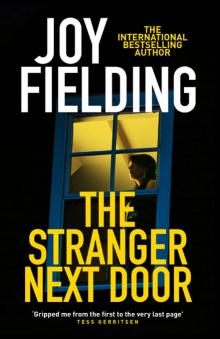 The Stranger Next Door
The Stranger Next Door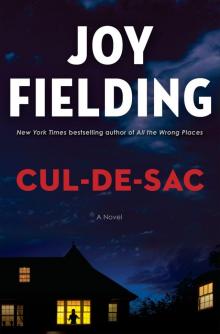 Cul-de-sac
Cul-de-sac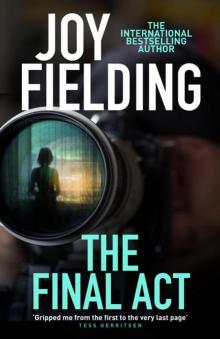 The Final Act
The Final Act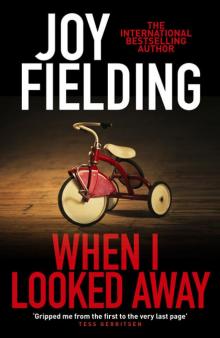 When I Looked Away
When I Looked Away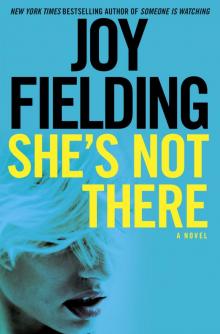 She's Not There
She's Not There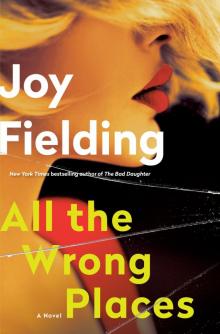 All the Wrong Places
All the Wrong Places Now You See Her
Now You See Her Don't Cry Now
Don't Cry Now Good Intentions
Good Intentions Still Life
Still Life Lost
Lost The First Time
The First Time Whispers and Lies
Whispers and Lies The Other Woman
The Other Woman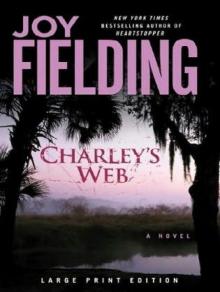 Charley's Web
Charley's Web Mad River Road
Mad River Road Puppet
Puppet Life Penalty
Life Penalty The Wild Zone
The Wild Zone Home Invasion
Home Invasion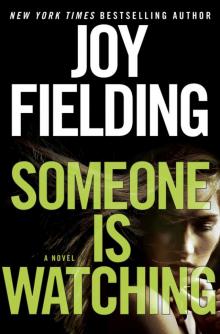 Someone Is Watching
Someone Is Watching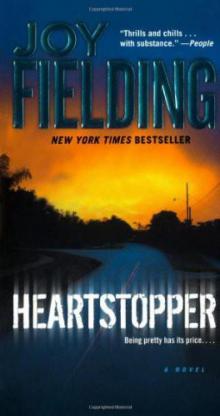 Heartstopper
Heartstopper See Jane Run
See Jane Run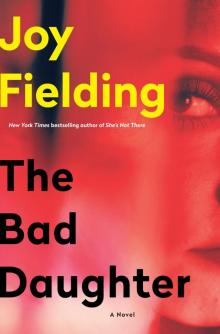 The Bad Daughter
The Bad Daughter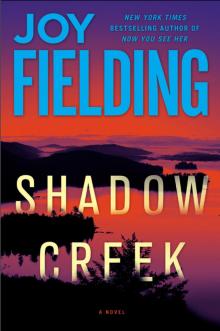 Shadow Creek
Shadow Creek Missing Pieces
Missing Pieces Kiss Mommy Goodbye
Kiss Mommy Goodbye Grand Avenue
Grand Avenue